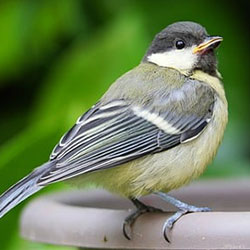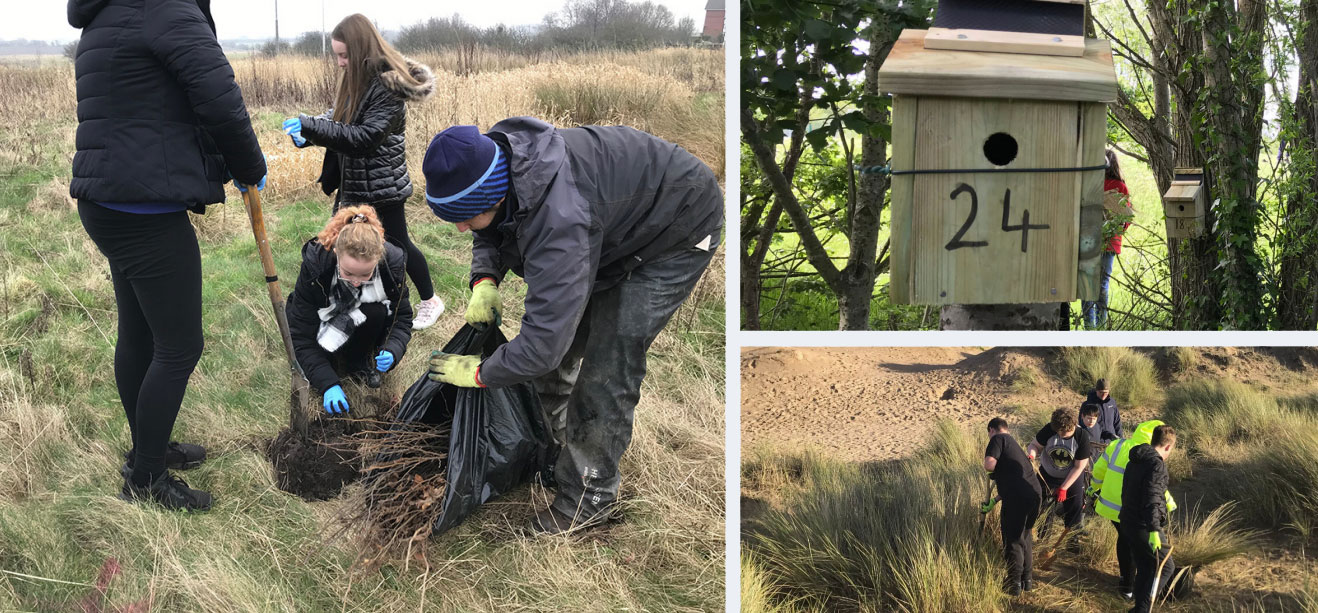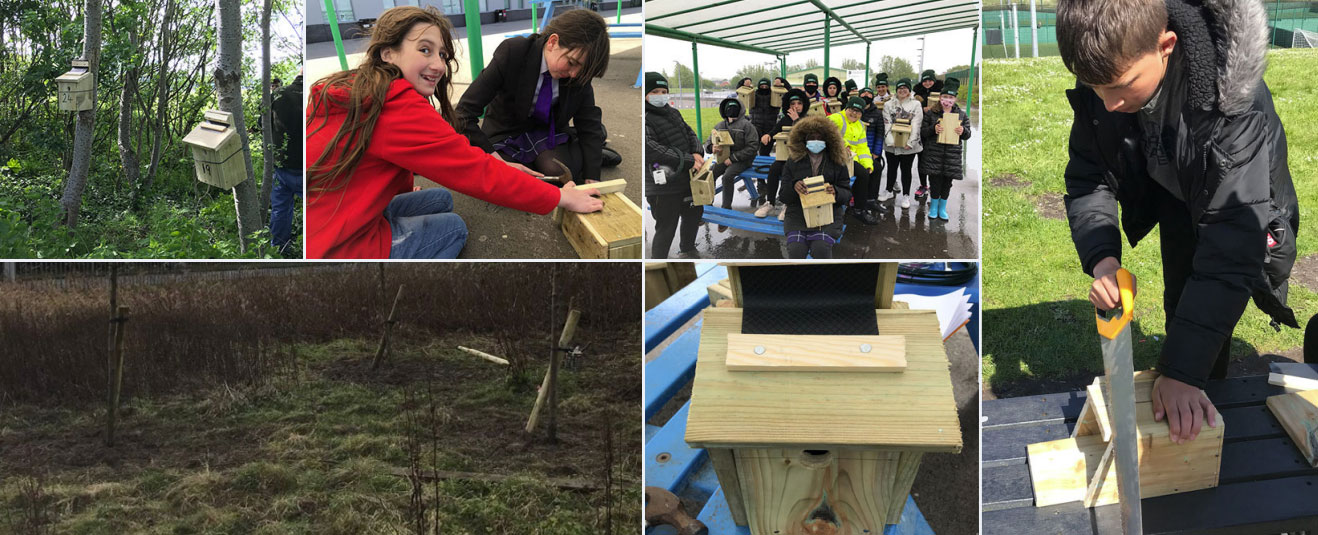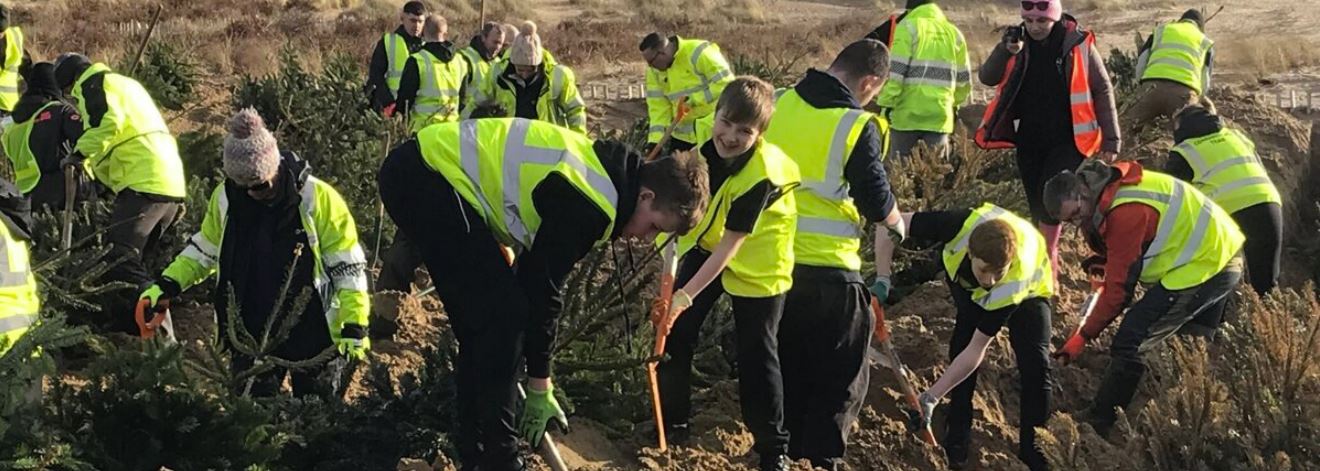
Climate change and nature loss are two sides of the same coin – we can’t tackle one without the other and we need to do so in a sustainable way, by meeting the needs of the present generation without compromising the needs of future ones. Our UK schools have the power to take action on both of these environmental issues today; whether it’s making physical changes around school grounds, transforming school values and championing sustainable behaviours or by putting pressure on local businesses and governments to deliver on climate promises. Students, teachers, families and local communities, from nursery schools right through to sixth form colleges, can all work together to be a positive force for change. We can encourage nature to thrive in and around our schools and help to safeguard our climate for future generations.
Since 2021, Blackpool Aspire Academy has been developing its global citizenship and environmental education by focusing on four main areas:
- Developing biodiversity. Within the schools’ grounds we have increased the levels of plant, insect, and animal life, across the site. Our school grounds are so far boasting a woodland and a wildlife meadow. To increase the variety of native species, KS3 students have now planted over 2,000 trees since 2022. Three oak trees will be taking centre stage in a few years’ time on the hills surrounding the fields. Rowan, holly, elders, lime and hazel trees have been added around them. As the football and rugby pitches are quite waterlogged over the winter, the teams also added Birch and Alder to absorb the water and dry up the area in the future. The school has now also its own orchard with Cherry trees, Conference pears and Plum trees added. We are hoping to include other variety of native trees in 2024 as well as create a new wildflower meadow, which will benefit pollinators in the summer months. Over thirty Bird boxes have now been installed within the school grounds, half of them having been utilised by nesting birds last season and further workshops are underway with the creation of bug hotels and feeders.
- Supporting environmental and sustainability work in the community. Students at Blackpool Aspire Academy have been taking part in the Fylde Sand Dune project every year since the spring of 2021. The Fylde Sand dunes are an important feature of the coastline, covering approximately eighty hectares between Starr Gate in the north and Lytham in the south. Unfortunately, over the past 150 years, more than 80% of our sand dunes have been lost. This loss is mainly due to the urban expansion of our coastal towns. However, while much depleted, the remaining dunes in Fylde make up more than 90% of Lancashire’s sand dunes, and still form the most significant part of the borough’s coastal defence. It is therefore important that we protect and conserve this valuable asset to our coastline. Students from the academy attended regular workshops over the past two years, having so far dug some of the dune ponds to support wildlife in the winter months, planted dune grasses, helping to reduce the amount of invasive species in the area over the summer term. In January 2024, our eco-council will be again supporting the team and plant discarded Christmas trees to defend against coastal erosion. Three new community projects will also take place in 2024, with more to follow in the coming weeks.

- Waste and energy management. The academy is supporting the Keep Britain Tidy and Eco-schools programmes. The Eco-schools’ lead staff are currently meeting with the Climate Youth Engagement Team from Blackpool Council to develop a School Climate Action Plan, whereby waste within the school will be reduced and re-using and recycling will improve, focusing on educating not only students, but also families and the community. The eco-council carried out an environmental review covering ten themes set out by the Eco-school programme over the past few weeks. A summary of this will soon be published on the school website. The students will then work on the action plan for 2023-24, focusing on key projects to tackle waste disposal and energy consumption.

- The Eco-garden project. Young people, especially within towns such as Blackpool, need to interact physically with the outside environment. Eco gardens are hugely beneficial to learning and physical development of children. Many of the national curriculum core subjects can be taught in Eco garden environments in a practical way which makes learning easy. Subjects such as Science, Mathematics and Art can all be directly integrated into outside learning and discovery in a fun and interesting way. Eco gardens allow students to take ownership over their space and make decisions based on trial and error learning scenarios empowering their confidence. The school is committed into designing and building a new eco-garden around the recent building addition here at Aspire. Design consultations are currently underway to try and maximise the space available.

.png)